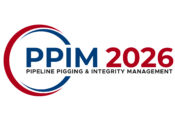COURSE SCHEDULE (both days)
7.30: Registration, breakfast, coffee
8.00 – 5.00: Course
It will be necessary to bring a laptop to this course.
WHY YOU SHOULD ATTEND
The threat from geohazards has received increasing attention among operators and regulators over the last decade. Several notable failures have received public attention, and PHMSA has stated their intent to focus on geohazards and has released two bulletins specifically addressing geohazards since 2019. Many operators are challenged with how to manage geohazards and the lack of clear requirements in this space make it difficult to know where to begin. This course will cover the basic level of information necessary for operators to understand and begin addressing geohazards.
WHAT YOU WILL LEARN
- • New Integrity Engineers attending this course will receive exposure to the geohazard management process including terminology and the tools used in the assessment of the geohazard threat.
- •Senior Integrity Engineers would gain a deeper understanding of geohazard assessment and mitigation methods, including response criteria and mitigation options.
WHO SHOULD ATTEND
Pipeline engineers, managers and service professionals who are involved with the operation, maintenance, inspection and repair of pipelines.
COURSE NOTES
All delegates will receive a detailed set of lecture notes in PDF format, providing an invaluable reference document.
CONTINUING EDUCATION UNITS
Upon completion of the course, participants will be eligible to receive 1.4 CEUs.
LECTURERS
Alex McKenzie-Johnson is a landslide enthusiast and geologist who spent his formative years roaming the hills and mountains of the Pacific Northwest. Alex’s approximately two decades of professional geology experience have been primarily focused on the management of pipeline geohazards across North America as both a consultant and as an employee of a major pipeline company. Alex was the lead author and project manager of the 2020 INGAA Foundation Report “Guidelines for Management of Landslide Hazards for Pipelines.” Alex was also a key contributor to the 2018 PRCI Report “Guidelines for Management of Geohazards Affecting the Engineering and Construction of New Oil and Natural Gas Pipelines” and the 2019 ISO Standard 20074 “Petroleum and natural gas industry — Pipeline transportation systems — Geological hazard risk management for onshore pipeline.”
Alex currently leads a team of geologists, geological engineers, and geotechnical engineers at Geosyntec Consultants, Inc. that provide support for many aspects of pipeline geohazard management including programmatic development of processes and procedures, threat identification and assessment, installation and implementation of instrumentation and monitoring, and design and oversight of mitigation measures.
Rhett Dotson is the Chief Engineer at D2 Integrity. Rhett has 17 years of experience in the pipeline industry with expertise in using data collected from in-line inspection, analysis, and full-scale testing to manage the threats associated with mechanical damage, weather and outside forces, and vintage pipe materials. Rhett has contributed to the development of API RP 1183 and is a member of the ASME B31.8 Operations and Maintenance subcommittee.
COURSE PROGRAM
DAY 1
- Introductions and Course Overview
- Geohazard Basics, Past Incidents, and Statistics
- Geohazard Regulations, Standards, and Advisories
- The Pipeline Threat from Geohazards
- Geohazard Management Program Structure
- Geohazard Threat Assessment – Level 1
- IMU Bending Strain Interpretation and Use
DAY 2
- Open Day 2 – Questions from Day 1
- Geohazard Classification and Decision-Making
- Geohazard Threat Assessment – Level 2
- FEA Modeling (Pipe Level 3 Assessment)
- Geohazard Data Management
- Geohazard Threat Management – Monitoring
- Geohazard Threat Assessment – Level 3
- Geohazard Threat Management – Mitigation
- Course Wrap-Up and Discussion



